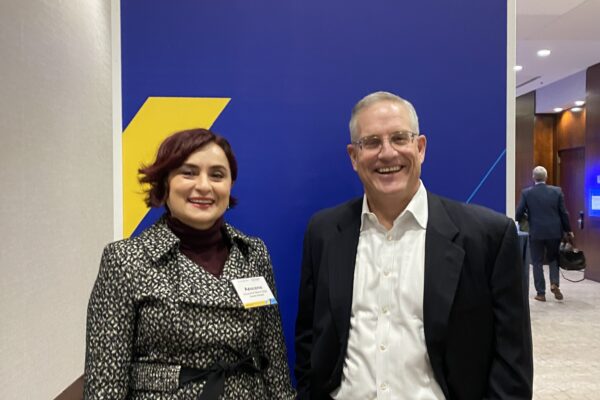12-12-23 As Seen in The Rochester Business Journal - Trust may sound appealing, but asset protection starts with the basics

Since you can’t take it with you, how can you make sure your assets will go where you want them to go when you’re gone?
“Many people come to me and say, ‘I want to protect my assets. Can I set up a trust?’ ” said David Shaffer, partner in the family wealth and estate planning department of Woods Oviatt Gilman.

The answer depends on the questions Shaffer asks in return and the conversation that ensues about the rules involving that particular strategy. “I wish I had a cookie-cutter answer for you. Everybody’s situation is a little bit different … The devil is always in the details.”
Baby boomers are expected to pass on an estimated $84.4 trillion in assets through 2045, according to the research and consulting firm Cerulli Associates. Of that, $72.6 trillion is estimated to be transferred to heirs. Protecting such assets from creditors, estate taxes and even long-term care health needs is making asset protection a significant part of financial planning.
“Everyone wants to be able to protect what they have for the future, whether that be making sure that their money will last them throughout their lifetime or to make sure that they’re able to pass on to their heirs,” said Melissa Talarico, financial advisor and credential as a chartered retirement planning counselor with Brighton Securities.
With so much at stake, it’s tempting to overthink the situation.
“Sometimes clients do too much planning,” said Veronica Van Nest, senior wealth management consultant for Manning & Napier’s Advisory Services Group. “Well, the majority of the time they don’t do enough, but sometimes they do too much and it does pigeonhole them a little bit.”
Before getting caught up in the intricacies of trusts and the complex regulations around limited legal liability corporations or family limited partnerships, start with the basics.
“The first thing that I would want to make sure that clients do is to have a will,” said Talarico. “That’s the easiest way to be able to protect your assets and make sure that your wishes are followed through when you have passed away.”
Also, make sure IRAs each have named beneficiaries. “That’s really something anybody should do as soon as they open a retirement account,” she said. Non-retirement accounts, such as brokerage accounts and bank accounts, can be designated to transfer on death to a specific person or entity.
Naming a power of attorney to handle your affairs if you are incapacitated is another baseline strategy.
“Usually people come in and they want it simple,” said Talarico, who described her role as helping a client match their goals to their assets. “It’s very rare that you have complicated instructions, and that really is where you need something a little bit more specialized.”
The term “trust” can be associated with assets into the seven figures, but trusts can be appropriate if there’s concern about how the beneficiary of the trust will handle the funds.
The person setting up the trust can write specific instructions for such things as how the proceeds can be used and when the funds become available. Where a will distributes assets upon death, a trust can disburse the assets in stages. A trust also can be used to prevent others from getting the assets.
“It’s a control thing,” said Van Nest, who also serves as trust officer with Exeter Trust Company, a New Hampshire chartered trust company.
But not everyone needs that level of complexity. Sometimes, a client may come in after talking with a friend who set up a trust and wants to do the same.
“It’s really a conversation about why do you think you need it,” she said. “I’ve had conversations where clients have come to me and said I need a trust. I’m like, ‘No, you really don’t.’ ”
The situation can get complicated if there are too many restrictions, such as the trust that allowed only for college tuition and wasn’t able to be used for room and board. “I usually counsel clients to be pretty broad in the terms and then have a conversation with the trustee like, ‘This is really what I’m thinking as far as the distribution.’ ”
One reason people set up trusts is to protect assets from creditors. In New York, a self-settled trust, in which the person setting up the trust also is the beneficiary, will not protect against creditors.
Shaffer said that while other states may allow such a trust for asset protection, there are potential barriers: You’d need to have a trustee in that jurisdiction; there are costs associated with administering the trust; and it still may be subject to litigation.
“If there’s enough money at stake, creditors are going to try to look through those trusts and in some cases, the judges have ruled in favor of the creditor,” he said.
Shaffer said he’s had clients ask about family limited partnership or family LLC, which is setting up a corporate entity with the goal of protecting assets.
“You can have some level of involvement with the management of the business, which is in some ways better than a trust. But it’s still not perfect because in a family limited partnership or a family LLC, you can’t give too much control to the manager or general partner. If you do, you’re leaving a window of opportunity for a creditor or for the IRS to question the legitimacy of it. … I could write up the best trust or corporate documents ever. But if it’s treated like the person’s own piggy bank, it’s not going to be worth the paper that it’s written on.”
For married clients, Shaffer has brought up the idea of a spousal lifetime access trust, or SLAT, as way to protect assets from creditors. “But that’s not foolproof either because if I’m having creditor problems, it’s very possible my wife might be as well,” he said.
Shaffer acknowledged that asset protection is nuanced and that if something sounds too good to be true, it probably is.
Shaffer echoed other advisors in saying that educating clients is a big part of estate planning. “Here’s what you can do. Here’s what you cannot do. Here’s what the risks are. … There are ways to make it happen, but there’s no quick fix. Anyone who thinks there is, is probably falling into the ‘this-is-too-good-to-be-true category.’ ”
Patti Singer is a freelance writer in Rochester. Contact her at pattisingermedia@gmail.com.


